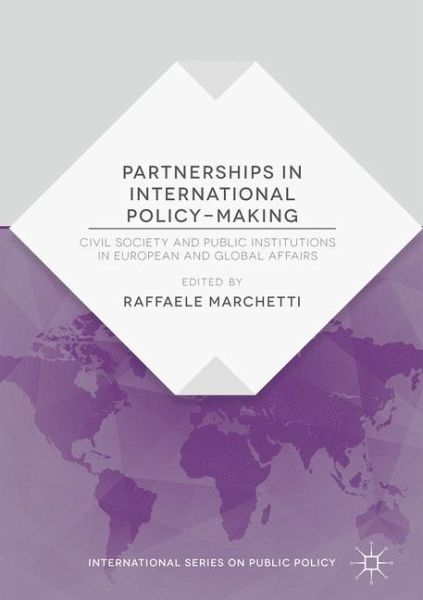
Partnerships in International Policy-Making
Civil Society and Public Institutions in European and Global Affairs
Herausgegeben: Marchetti, Raffaele

PAYBACK Punkte
38 °P sammeln!
This book analyzes how international organizations and the European Union engage with civil society to pursue their policy goals. Multi-stakeholder initiatives, private-public partnership, sub-contracting, political alliances, hybrid coalitions, multi-sectoral networks, pluralist co-governance, and indeed foreign policy by proxy are all considered. Bringing together the most advanced scholarship, the book examines trade, environment, development, security, and human rights with reference to both EU and global institutional settings such as the WTO, UN Climate Summits, FAO, IFAD, ICC, UNHRC, UN...
This book analyzes how international organizations and the European Union engage with civil society to pursue their policy goals. Multi-stakeholder initiatives, private-public partnership, sub-contracting, political alliances, hybrid coalitions, multi-sectoral networks, pluralist co-governance, and indeed foreign policy by proxy are all considered. Bringing together the most advanced scholarship, the book examines trade, environment, development, security, and human rights with reference to both EU and global institutional settings such as the WTO, UN Climate Summits, FAO, IFAD, ICC, UNHRC, UNSC, and at the EU level the DG FISMA, TRADE, CLIMA, DEVCO, HOME and ECHO. The book also studies the use of NGOs in the foreign policy of the EU, USA, and Russia. This changing politics and the polarized debate it has generated are explored in detail.














